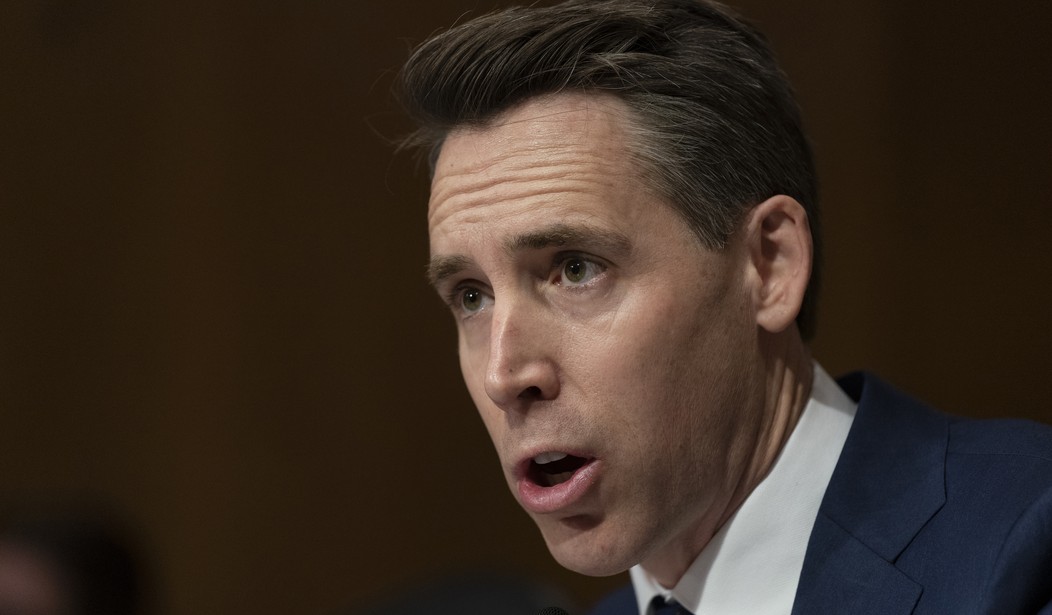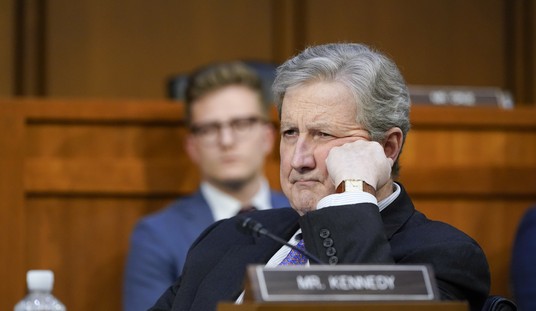Could the beginning of the end of Citizen’s United be approaching? If Sen. Josh Hawley (R-MO) has anything to say about it, it just might be.
Hawley is set to introduce legislation that would reverse the Supreme Court’s landmark decision in Citizen’s United v. FEC.
Thirteen years removed from that exchange between Obama and the justices, Hawley plans to introduce legislation that would gut Citizens United v. FEC, RCP is first to report. “My goal is to get corporate money out of our politics,” he said. His aim is to stop “corporate influence” from “controlling our elections.”
This kind of rhetoric is not unusual. But it usually comes from Democrats.
President Biden pledged to overturn Citizens United and bring to heal the Super PACs that shower politicians with the kind of unlimited anonymous donations known colloquially as “dark money.” His closest ally in this effort: Progressive Socialist Sen. Bernie Sanders, who blames the decision for turning America into “an oligarchy” where billionaires “buy elections.”
And now this coalition includes at least one Republican. Hawley blames Citizens United for giving corporations free rein to “sink their teeth” into the American political process.
The Hawley legislation would ban publicly traded corporations from making independent expenditures and giving to Super PACs while prohibiting them from cutting political ads or engaging in “other electioneering communications.” Ironically, however, it would not stop the conservative group that upended modern election law. Citizens United is itself a non-profit and, therefore, wouldn’t be affected.
Citizens United, which was decided in 2010, enabled corporations to spend unlimited sums of money on independent political activities. The ruling was widely panned by folks on the left, who argued that it would allow special interests to influence the outcomes of important elections. Hawley’s motive for opposing the ruling is that he does not believe one “can make an originalist case for business corporations being treated like individuals when it comes to the right to political speech.”
Under Hawley’s proposal, publicly traded corporations would not be allowed to make independent expenditures or contribute to Super PACs. However, it would not apply to nonprofit organizations like Citizens United. It would still allow privately held firms and wealthy individuals to make donations to candidates or organizations.
Predictably, Hawley’s move has been met with resistance, especially from Senate Minority Leader Mitch McConnell (R-KY), who lauded the ruling as restoring “the First Amendment rights of these groups. He cautioned Republicans against supporting Hawley’s bill.
Senate GOP Leader Mitch McConnell bluntly warned Republican senators in a private meeting not to sign on to a bill from Sen. Josh Hawley aimed at limiting corporate money bankrolling high-powered outside groups, telling them that many of them won their seats thanks to the powerful super PAC the Kentucky Republican has long controlled.
According to multiple sources familiar with the Tuesday lunch meeting, McConnell warned GOP senators that they could face “incoming” from the “center-right” if they signed onto Hawley’s bill. He also read off a list of senators who won their races amid heavy financial support from the Senate Leadership Fund, an outside group tied to the GOP leader that spends big on TV ads in battleground Senate races. On that list of senators: Hawley himself, according to sources familiar with the matter.
It is worth noting that given the current makeup of Congress, Hawley’s bill has an uphill battle and likely would not make it to President Joe Biden’s desk. However, this proposed legislation could become the first step toward passing a law that would do away with the Citizens United decision. It could bring the debate over corporate influence over politics further to the forefront. While it may not have the level of support it needs currently, things could easily change in the future.













Join the conversation as a VIP Member